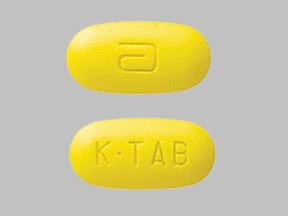
Klor-con 10 Coupons & Savings Card – Discount Prices from $18.95
Brand for: Potassium chloride er
My prescription
Edit
10MEQ, Potassium Chloride ER (90 Tablet Extended Releases)
Select pharmacy

CVS
$29.12
COUPON PRICE
Albertsons
$18.95
COUPON PRICE
Walmart
$20.23
COUPON PRICE
Walgreens
$23.74
COUPON PRICEKlor-con 10 savings card
Show this card to your pharmacist
Albertsons
$18.95
BIN
ID
PCN
GRP
011867
LH1C8FA8A0
HT
LABH001
Powered by
More prescriptions for hypokalemia
More prescriptions for hypokalemia
Klor-con 10 (Potassium Chloride ER) dosage forms
Dosage Quantity Price from Per unit 10MEQ 90 Tablet Extended Releases $20.23 $0.23 10MEQ 1 Tablet Extended Release $2.62 $2.62 10MEQ 4 Tablet Extended Releases $3.00 $0.75 10MEQ 15 Tablet Extended Releases $4.37 $0.29 10MEQ 20 Tablet Extended Releases $5.00 $0.25 10MEQ 30 Tablet Extended Releases $6.24 $0.21 10MEQ 40 Tablet Extended Releases $7.49 $0.19 10MEQ 45 Tablet Extended Releases $8.11 $0.18 10MEQ 60 Tablet Extended Releases $9.99 $0.17 10MEQ 80 Tablet Extended Releases $16.50 $0.21
| Dosage | Quantity | Price from | Per unit |
|---|---|---|---|
| 10MEQ | 90 Tablet Extended Releases | $20.23 | $0.23 |
| 10MEQ | 1 Tablet Extended Release | $2.62 | $2.62 |
| 10MEQ | 4 Tablet Extended Releases | $3.00 | $0.75 |
| 10MEQ | 15 Tablet Extended Releases | $4.37 | $0.29 |
| 10MEQ | 20 Tablet Extended Releases | $5.00 | $0.25 |
| 10MEQ | 30 Tablet Extended Releases | $6.24 | $0.21 |
| 10MEQ | 40 Tablet Extended Releases | $7.49 | $0.19 |
| 10MEQ | 45 Tablet Extended Releases | $8.11 | $0.18 |
| 10MEQ | 60 Tablet Extended Releases | $9.99 | $0.17 |
| 10MEQ | 80 Tablet Extended Releases | $16.50 | $0.21 |
| 10MEQ | 100 Tablet Extended Releases | $21.48 | $0.21 |
| 10MEQ | 120 Tablet Extended Releases | $23.97 | $0.20 |
| 10MEQ | 180 Tablet Extended Releases | $31.19 | $0.17 |
| 10MEQ | 200 Tablet Extended Releases | $32.99 | $0.17 |
| 10MEQ | 270 Tablet Extended Releases | $37.42 | $0.14 |
| 10MEQ | 360 Tablet Extended Releases | $41.13 | $0.11 |
| 10MEQ | 500 Tablet Extended Releases | $46.90 | $0.09 |
| 10MEQ | 540 Tablet Extended Releases | $48.55 | $0.09 |
| 10MEQ | 1000 Tablet Extended Releases | $67.50 | $0.07 |
What is Klor con 10 mg used for?
Klor-Con 10 mg is used to treat or prevent low levels of potassium in the blood, a condition known as hypokalemia. Potassium is an essential mineral that helps maintain proper function of the heart, muscles, and nerves.
Why would a doctor prescribe klor-con?
A doctor might prescribe Klor-Con to treat or prevent low levels of potassium in the blood, a condition known as hypokalemia. This can occur due to various reasons, such as prolonged illness, certain medications like diuretics, or conditions that cause excessive potassium loss. Maintaining proper potassium levels is crucial for normal cell function, nerve transmission, and muscle contraction.
What is the difference between potassium chloride and klor con?
Potassium chloride is a chemical compound used to treat or prevent low blood potassium levels. Klor-Con is a brand name for a specific formulation of potassium chloride. The primary difference lies in the formulation and brand, but both serve the same purpose of supplementing potassium in the body.
